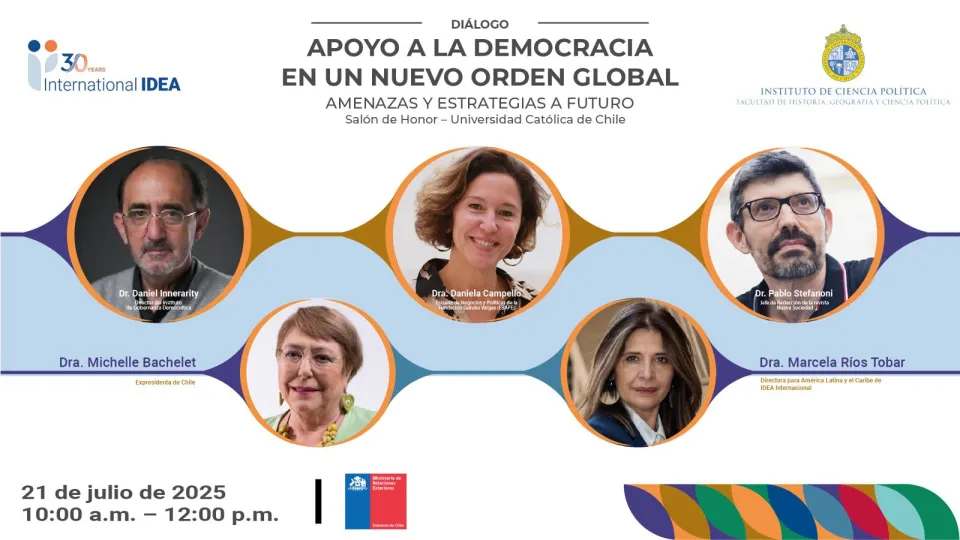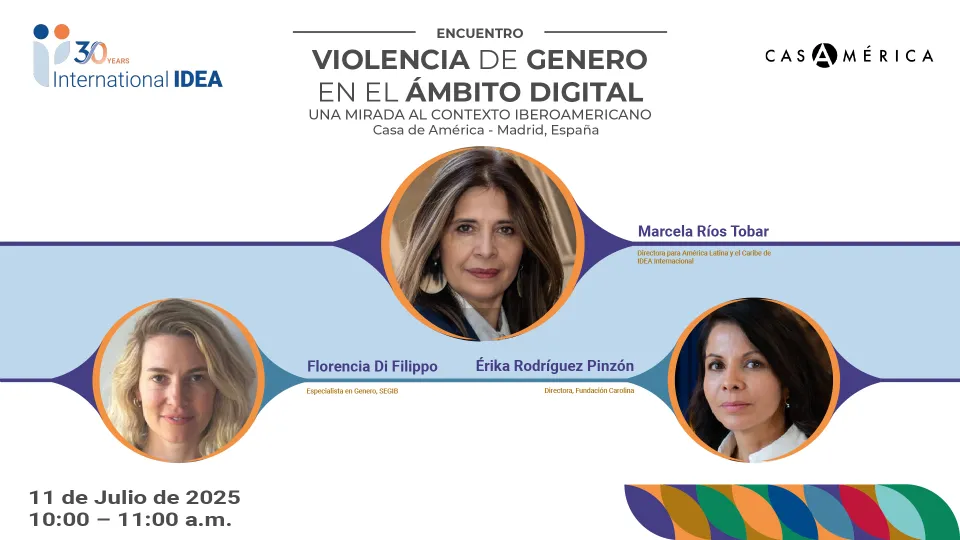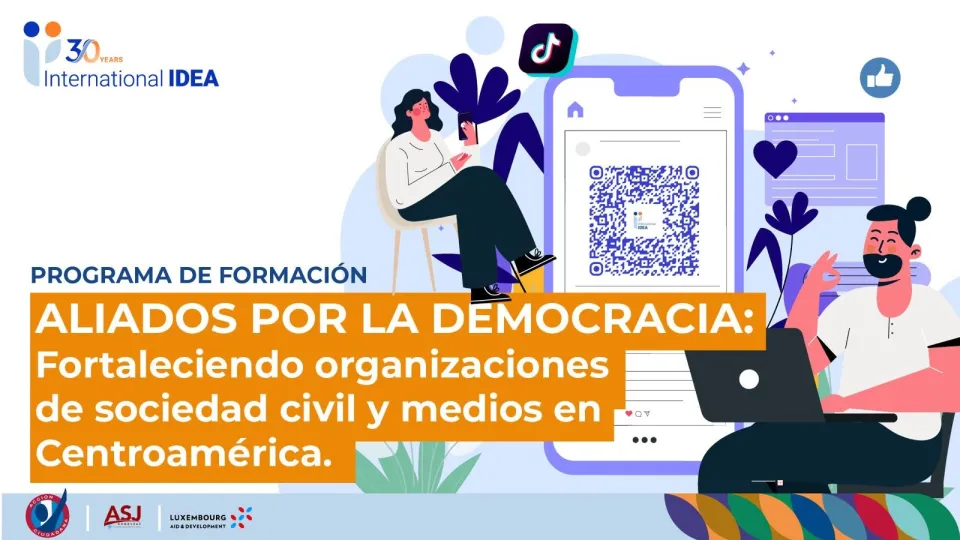Electoral stakeholders in Seychelles are gearing up for the snap presidential election scheduled for 3-5 December. With candidate registration taking place in mid-November, this small island state of approximately 90,000 inhabitants is expecting more candidates in this race than ever before.
Búsqueda
Region
Country
Type
Last Thursday morning, IDEA’s Myanmar country Head of Office Jorge Valladares walked into the IDEA office at the Union Election Commission in Naypyitaw to find makeshift beds and half-drunk cups of coffee. The team had been up all night working with UEC staff to scrutinize election observers, and they had no plans of quitting anytime soon.
The Friedrich Naumann Foundation for Freedom continues to support credible, transparent and inclusive elections in Myanmar.
Last Sunday, 25 October, elections were held in several Latin American countries. Two presidential elections – first round in Argentina and the runoff election in Guatemala – as well as important local elections in Colombia, the result of which should be understood in light of both the ongoing peace process and the 2018 presidential election.
El pasado domingo 25 de octubre la región experimentó una intensa jornada electoral: se celebraron dos elecciones presidenciales —primera vuelta en Argentina y balotaje en Guatemala—, además de importantes comicios locales en Colombia, cuyos resultados guardan estrecha relación con el proceso de paz y con las elecciones presidenciales de 2018.
Jimmy Morales, the new President of Guatemala, has his work cut out for him as he faces several challenges in need of instant attention.
The results were announced shortly after the second round of elections on October 25 that Jimmy Morales, a popular TV comedian with a degree in business administration and a master’s degree in strategic studies with a focus in security and defence, would take over the reins of this troubled Latin American nation.
Jimmy Morales, el nuevo presidente de Guatemala, estará muy ocupado en la medida que enfrenta diversos desafíos que requieren atención inmediata.
Los resultados, anunciados poco después de que se realizara la segunda ronda electoral, el 25 de octubre, mostraron que Jimmy Morales, un popular comediante de televisión, licenciado en administración de empresas y con maestría en seguridad, se había hecho con la gobernación de tan problemática nación latinoamericana.
In 2006, leaders in Nepal came together to sign the Comprehensive Peace Accord, signalling the end of the 10-year armed conflict.
In 2008–12, the first Constitutional Assembly (CA) made remarkable progress in drafting a constitution. However, when the tenure of the first CA ended, key issues remained unresolved, and the constitution could not be finalized.
From October 22-30, International IDEA’s Electoral Processes and Africa programmes facilitated a series of activities in collaboration with the Election Management Bodies (EMB) of two of its Southern African member states – South Africa and Botswana – on the Electoral Risk Management Tool (ERMTool).
As part of the STEP democracy programme, International IDEA in Myanmar has been supporting the Union Election Commission (UEC) with trainings on the design and communication of key messages to the public through the media. Members of no less than 80 electoral sub-commissions, at regional, district and township levels have been trained by IDEA between September and October 2015.
Election observation is considered a key element to organisation of credible, inclusive and participatory electoral processes. Over the past years, citizens' election observation, previously known as domestic election observation, has received growing attention.
This publication provides a brief overview of the peace and constitution-building processes in Nepal, starting with the end of decade-long People’s War in 2006 to promulgation of the constitution in 2015. It describes the incredible gains made by national actors over the years and the important supportive role played by the international community.
La présente étude, fruit d’une collaboration entre le bureau d’IDEA International en Haïti et l’Union européenne, se penche de plus près sur la relation qu’entretiennent les partis politiques haïtiens avec leurs membres élus-es au Parlement, à travers le regard d’éminentes personnalités politiques du pays.
On 25 October 2015, Ukraine held its first local elections since the 2014 Euromaidan protests. The stakes were high for local and international stakeholders, both because of the promise of increased decentralization to the regions and because the polls were seen as a test of President Petro Poroshenko’s efforts to act on the Euromaidan protestors’ demands for increased transparency, accountability and inclusivity in government.
Nepal’s legislature/parliament today elected Bidya Devi Bhandari as President receiving 327 out of 549 votes. Her closest contestant Kul Bahadur Gurung of the Nepali Congress received 214 votes and 48 lawmakers were absent during the vote.
The vote took place after the assembly failed to meet the deadline to propose a consensus candidate in accordance with the newly promulgated constitution.
Millions of Haitians hit the polling stations again on Sunday for the first round of the presidential election as well as the second round of the legislative and municipal elections. The election unfolded peacefully and without major incidents.
For the upcoming General Elections, the Union Election Commission has invited international as well as domestic organisations to observe the electoral process. The UEC has now released a cartoon aimed at informing voters about the observers’ Code of Conduct, rights and responsibilities, and to prepare voters to meet observers at polling stations on election day.
STOCKHOLM/JAKARTA – ASEAN, through the initiative of the Philippines and in cooperation with International IDEA, today launched the report on ASEAN Election Observation at the ASEAN Secretariat in Jakarta, Indonesia.
The report highlights the following:
Elections can either further democracy, development, human rights and security, or undermine them.
In relation to the opening of a new exhibition on voting materials at the National Museum of Kenya, the French Institute for Research in Africa organised a public forum on elections and technologies. The topic is highly relevant in the African region in general – but maybe particularly in Kenya where a number of new technologies were introduced in the last election.


